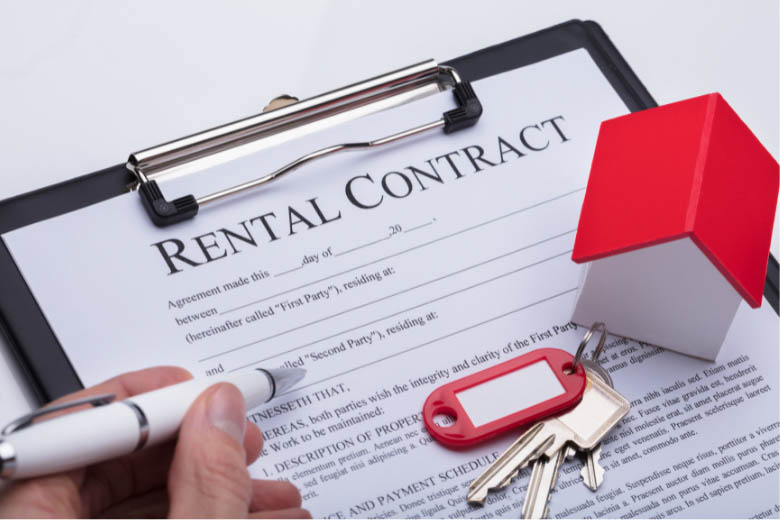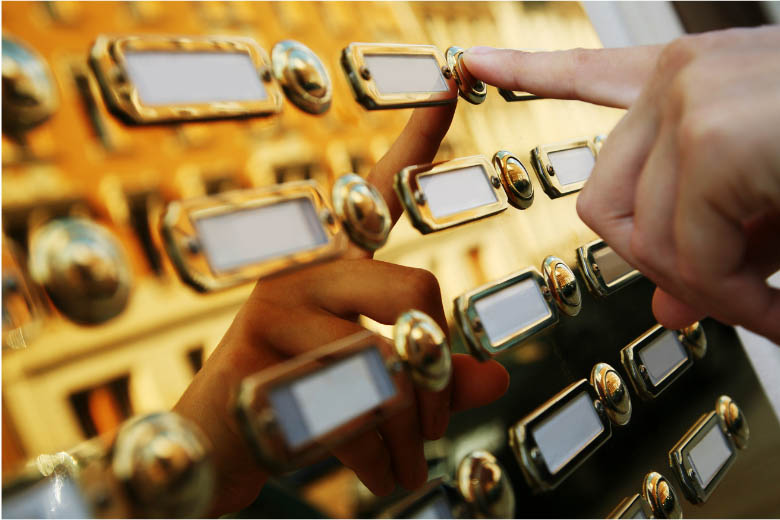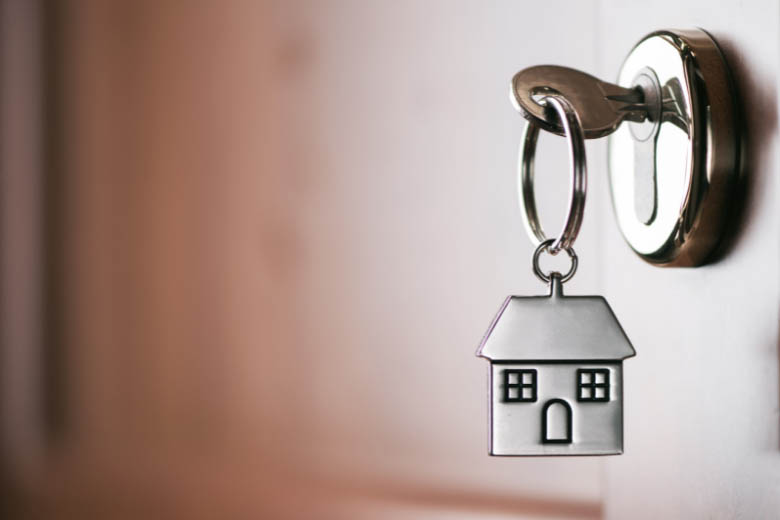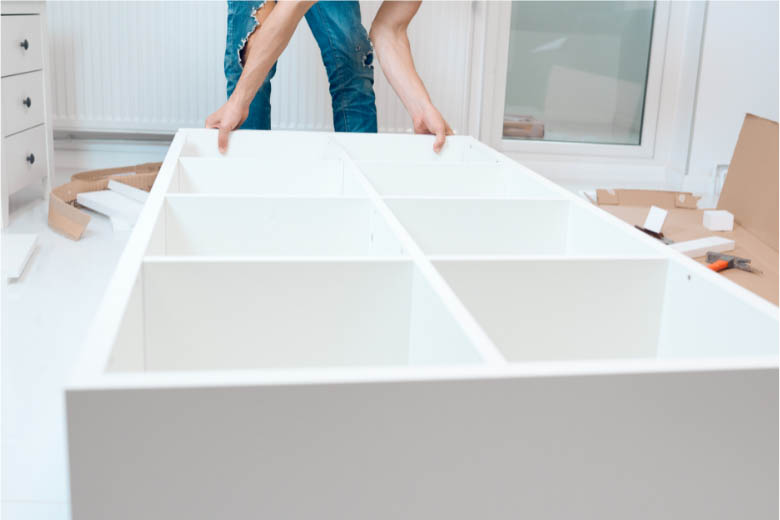
Useful German customs every expat should know to avoid culture shock renting an apartment in Germany as a foreigner – written by expats, for expats!
Moving abroad is exciting, but it does come with many challenges. And one of those challenges is managing the culture shock you will no doubt experience as a foreigner moving to another country.
Moving to Germany is no exception. There are many German customs and traditions here that you’ll need to learn and adapt to as expats living in the country.
We know this personally as expats that have been living in Berlin for the past 5 years.
Learning these cultural norms (and sometimes cultural barriers) in Germany isn’t always easy. But it’s also what we love about the living abroad experience. To broaden our minds and see the world from another culture’s perspective.
We love it so much that we could write a whole book on the topic! They’re just so many things to learn and know about German culture.
So to help you acclimatize to expat life in Germany, we wanted to share with you 14 German customs you should know to avoid getting culture shock renting an apartment in Germany.
Not only will it help you understand the apartment rental process a little better. But it will also save you some time, money, and heartache. Here’s a sneak peak:
Related Guide: Read our guide on 12 Tips For Renting in Germany for more practical ways to increase your chances of renting your dream apartment.
A quick disclaimer before we begin. Please note that we are sharing research and tips based on our personal experience of renting an apartment in Germany and that this does not replace professional or legal advice.
1. Renting An Apartment in Germany is Harder Than Finding A Job
Renting an apartment in Germany is notoriously hard. Not only for foreigners or expats, but for locals too. It’s so tough, that it’s actually harder to find an apartment than it is finding an English-speaking job in Germany!
But here’s the culture shock you need to know when renting in Germany: it’s quite common to include a motivational letter as part of your apartment rental application. And a cultural norm in Germany to attach a photograph of yourself with your application.
And just as you would for a job interview, you need to look presentable for your apartment viewing (if you’re lucky to get one). Bring a printed copy of the rental application pack with you like you would a CV. And pray that you did enough to leave a good impression on your (hopefully) future landlord.

Yup! It’s notoriously challenging and stressful to rent a flat in Germany, but it’s not impossible.
We’ve been through the apartment rental process twice in Berlin during our 2.5 years living here as expats. We can’t say that we’re pros. But we definitely have some great tips and insight that will help boost your chances of successfully renting an apartment in Germany.
If you need a list of websites that offer apartment rentals in Germany or a list of the exact documents you need to submit, read our How To Rent An Apartment in Berlin guide.
We wrote it for expats looking to rent in Berlin. But many of the tips included there will help you rent an apartment in other cities of Germany, like Frankfurt, Munich, Hamburg, Dusseldorf, Aachen or Cologne.
Bonus Tip: Whether you’re renting an unfurnished or fully furnished apartment, it’s important to get household contents insurance. For as little as €2.50 a month, you can insure your valuables from fire damage, water damage and theft.
2. House Swap or Apartment Exchange is a Cultural Norm in Germany
This is another culture shock you may experience when renting in Germany: apartment or house swaps are a cultural norm here.
And by this, we don’t just mean short-term vacation house swaps. But for long-term home exchanges too!
How exactly does this work, you may ask? Well, in some German cities, the demand to rent apartments are so high that tenants have to resort to house swaps to secure their next apartment rental.
House swaps offer several benefits, you see. Firstly, it means that you won’t need to cancel your existing rental contract to move. It gives you a safety net and some leverage in case you can’t find another apartment.
But most importantly, people do house swaps in Germany because there’s a high chance that they’ll be able to secure the new apartment at the current rental price. And who doesn’t want that?!

The first time we came across house swaps or ‘Wohnungstausch’ in Germany was on eBay Kleinanzeigen. We thought it was a scam at first because long-term home swaps are not common in South Africa or the UK. But in Germany, it’s completely normal.
Apartment rental scams are also common in Germany. Especially in cities like Berlin, Hamburg, Frankfurt and Munich where the demand to rent is exceptionally high.
But don’t worry – you can easily dodge these fraudsters with the tips we’ve included in our Berlin Apartment Scams guide. It lists many red flags you should watch out for when renting an apartment in Germany.
Related Guide: Have you ever wondered how different life is living in London vs Berlin? Find out the pros and cons of living in these two cities in our Berlin vs London guide.
Flatshare, or otherwise better known as WG, (‘Wohngemeinschaft’) is pretty common in Germany. Not just for expats, but for locals too. Especially in the big cities like Berlin, Frankfurt, Dusseldorf, and Munich where rental prices keep rising and housing supply is scarce.
This can be a culture shock for many foreigners renting in Germany for the first time. But there are many benefits to flatshare or rent a room in Germany.
Not only is it a great way to reduce and share living costs. But it’s also a great way to meet people as an expat moving to a new city and get a taste of the co-living lifestyle.
Plus, flatshare is often the easier way to rent an apartment in Germany when you first arrive here as a foreigner.
4. Unlimited Rental Contracts are Common in Germany
This is probably THE biggest culture shock renting in Germany – most rental contracts in Germany are for an unlimited tenancy. This means that tenants can effectively continue renting the apartment for as long as they want. There is no time limit on rental contracts.
This sounds crazy and commercially unrealistic. But we can assure you that it’s real.
We know – we’ve consulted with a lawyer specializing in real estate and tenant rights and he confirmed that it’s true. Even so-called fixed-term apartment rental contracts that specify a certain lease period are unlimited if a tenant wants to continue living there.

There are only a handful of reasons that a landlord can use to terminate a tenant’s rental contract in Germany. The first one, of course, is if you breach the rental contract by not paying the rent.
The second way a landlord can end your lease is if he/she (or their immediate family member) needs to live in the apartment for their own use.
And even then, the landlord has to be able to prove that there is a genuine need to evict the tenant and stay in the apartment (i.e. important life changes or financial situation has deteriorated).
And finally, the last reason is if massive renovations need to be done to the apartment. In this case, the apartment needs to be almost inhabitable for the landlord to have sufficient reason to evict you as a tenant.
This is a huge culture shock for those renting in Germany for the first time. You’ll be surprised at how few expats or foreigners know this and why landlords are quick to take advantage of this lack of knowledge.
That’s why we highly recommend all expats join a Berlin tenant association (like the Berliner Mieterverein or Berlin Mieterschutzbund) or get legal insurance. Many landlords exploits expats’ not knowing their tenant rights renting in Germany. Plus, the language barrier adds to their advantage too.
That’s why we recommend paying a small monthly fee to join any official Berlin tenant association. Or alternatively, get legal insurance so can always get proper legal advice whether it’s related to your rental or employment contract.
Related Guide: Planning on moving into a new apartment? Find out 10 things you must do after you sign the rental contract for your new home in our Moving Apartments in Germany Checklist guide.
5. Apartments are Described by Number of Rooms (Not Bedrooms)
The first thing you’ll notice when looking at rental apartment listings in Germany is that they’re described by the number of liveable rooms, and not by the number of bedrooms like in other countries.
So for example, a 2-bedroom apartment in Germany would be listed as a 3-room apartment or a ‘3-Zimmer Wohnung’ if we translate that to German.
This can be a little confusing for new expats who are planning on moving to Germany. But something you can quickly wrap your mind around once you’re aware of this cultural norm.
6. Apartment Numbers Do Not Exist in Germany
Another common culture shock expats experience when renting in Germany for the first time, is realizing that apartment numbers do not exist in Germany.
Instead, your surname is listed on the front entrance, doorbell and postbox for all to see.
It’s quite ironic actually, given how much the Germans value their privacy, but it’s true. Apartment numbers are non-existent in Germany.

7. The Master Key Conundrum
This cultural quirk boggled our minds when we first rented an apartment in Berlin and we’re pretty sure it’s going to shock you too.
It’s quite common in Germany for each tenant in the apartment building to have one central key (or master key). This one master key unlocks both the door to the main entrance of the entire building AND the door to your individual apartment.
But don’t worry – your neighbors can’t unlock your apartment door and neither can you unlock theirs.

These impressive lock systems are quite common for many ‘Altbau’ (old German-style) apartment buildings in Germany. So don’t be shocked or have sleepless nights pondering over this master key conundrum.
A quick tip: make sure to not lose your master key. They’re very expensive to replace (over €200) and you won’t be able to replace them on your own without the landlord’s permission.
8. Locking Yourself Out of Your Apartment
This is technically more of a quirk than a cultural norm, but it’s really common (and easy) to lock yourself out of your own apartment in Germany.
The door locks here are designed in such a way that it’s always locked from the outside. So if you ever rush out of your apartment and mindlessly forget to take your keys, you’ll have to call a locksmith…
Or you could save yourself €80 to €200 by ‘breaking into’ your own apartment.
9. Long-Term Apartment Rentals Often Exclude Built-in Kitchens
This is another common culture shock foreigners experience when renting in Germany for the first time.
It’s a cultural norm here to rent an unfurnished apartment completely empty. And by empty, we mean that you’ll have to bring and install your own kitchen, wardrobes, and cupboards.
Yes – that means you’ll have to bring your kitchen appliances too, like a fridge, oven, dishwasher and washing machine.
That’s why you shouldn’t be surprised when people have to move their furniture along with their ENTIRE kitchen when moving into a new apartment in Germany.
Sanitary installations like toilets, washbasins, baths and showers are included though. So at least you won’t have to worry about that.
Related Guide: Moving into a new apartment? Find out how you can easily rent a van in Germany and how much it costs in our Van Rental in Germany guide.
10. Taking Over Furniture from a Previous Tenant
Moving homes is often a stressful process. So you can imagine how this is magnified when you have to uninstall a built-in kitchen, disconnect your large home appliances, and carry it down 3 to 4 flights of stairs to get them onto a transport van. Only to have to repeat the process in reverse when you arrive at your new home…
So to skip all the above hassle, some tenants choose to sell their furniture, appliances and built-in kitchen to the new tenant instead.

We experienced this culture shock when we were looking to rent a long-term apartment in Berlin.
We were shocked not because we have something against second-hand furniture. But rather the fact that it often becomes a REQUIREMENT to buy everything in the apartment (except their clothes) if you want to rent the apartment.
And it doesn’t come cheap too. We’ve seen some crazy apartment listings that ask you to pay €5,000 to €9,000 to buy the tenant’s furniture and it’s not negotiable either.
Related Guide: Are you looking to rent an apartment in Berlin but not sure what’s the best neighborhood for you? Don’t worry – our Berlin Neighborhoods and Districts guide will help you!
11. How Monthly Electricity Bills Are Calculated in Germany
This is another cultural norm that shocks foreigners renting an apartment in Germany for the first time. You pay your monthly electricity bill in Germany based on your estimated electricity consumption, not your actual consumption. Crazy, right?!
This is pretty normal in Germany because you only receive your electricity bill annually here when your actual meter reading is taken down by your electricity provider.
But to avoid people having to fork out a huge bill at the end of 12 months. Electricity providers use an estimated electricity usage amount to calculate what you should pay monthly.
So that when you finally receive your electricity bill, you’ll either get money refunded to you because your usage was less than estimated. Or you have to pay extra for using more than your estimated electricity consumption.
Your electricity bill for the following year will then be adjusted lower or higher based on your actual electricity consumption in the previous year.
Related Guide: Need to signup with an electricity provider in Germany, but don’t know where to start? Don’t worry – our Electricity Providers in Germany guide will answer all your questions. From how to compare prices to how to find the right one for you.
12. German Apartments Have Awkwardly-Shaped Bathrooms
This is a common culture shock especially for Americans renting an apartment in Germany.
The bathrooms in most ‘Altbau’ apartments are often awkwardly-shaped. It’s either long and narrow or so huge that you could replace it with an entire bedroom. There’s no in-between.
The design (or rather lack thereof) of the bathroom looks like an afterthought. And that’s because it is! It’s one of the cultural quirks of ‘Altbau’ apartments in Germany.
Many of these buildings were designed with communal bathrooms. So when they were later subdivided into individual apartments, the bathrooms were, in fact, included as an afterthought.
Save Me For Later

13. Paying TV Tax in Germany (When You Don’t Have a TV!)
Many foreigners that move to Germany find this cultural norm hard to get their minds around. And that is anyone living in Germany is required to pay monthly TV and radio license fees (or ‘Rundfunkbeitrag’) regardless of whether you own a radio and TV or not!
Yes – that includes us expats too. Even if you never watch the local TV channels because your German language skills are limited to ‘Tschüss’ and ‘Dankeschön’.
That’s why you’ll often hear people call this ‘TV tax in Germany’.
Related Guide: Ever wondered who do you pay German TV tax to or whether you’re one of the lucky few to be exempt from paying? Read our Germany TV Tax guide to get all the answers.
14. Requirement to Repaint The Apartment
And the last culture shock you should know when renting in Germany as a foreigner.
It’s a German custom to re-paint the apartment walls white at the end of your lease. Most rental contracts in Germany will even include this as a clause in the lease agreement!
This requirement to repaint the apartment is more common when renting long-term apartments in Germany than short-term rentals. So if your rental contract doesn’t mention anything about repainting the walls, make sure to leave it as you found it.

How many of these culture shocks have you already experienced living in Germany as an expat? Send us a message and share your experience. We would love to hear from you!




